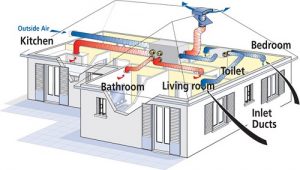 Commercial HVAC systems have a tendency to be steadier than residential HVAC systems as far as work hours. Crisis benefit calls from private clients can and do come in at painfully inconvenient times, yet a couple of commercial foundations even notice if their HVAC framework goes down after business hours. In any case, that doesn’t imply that occupations are essentially unfaltering—some association folks wind up working for twenty distinct organizations throughout their professions.
Commercial HVAC systems have a tendency to be steadier than residential HVAC systems as far as work hours. Crisis benefit calls from private clients can and do come in at painfully inconvenient times, yet a couple of commercial foundations even notice if their HVAC framework goes down after business hours. In any case, that doesn’t imply that occupations are essentially unfaltering—some association folks wind up working for twenty distinct organizations throughout their professions.
In a retreat, when you’re the low man on the command hierarchy, it doesn’t make a difference what your range of abilities is, if that organization is downsizing, you’re going. The span of the commercial likewise influences this dynamic.
Commercial firms specialize more than residential HVAC companies. Since they usually employ more people, they often are unionized. Commercial specialists show up, carry out their activity, and go home. Contracts are masterminded and arrangements are taken care of by another person and the cash is all changing hands between people in the back workplaces.
Residential systems are simpler and some folks in the industry think it’s easier to get started on residential work for this reason.
On the residential side, smaller contracting companies tend to dominate, meaning non-union shops are more common in most areas. According to Buscher, in some markets cost competition has all but eliminated union-based residential HVAC services. That leaves a lower barrier to entry for residential work, another plus if you are just breaking into the industry.
Read full article: HVAC School.
On the off chance that you live or work in a more seasoned building, it’s reasonable that open air is leaking inside through broken pipes, inadequately protected dividers, and ineffectively fixed windows and entryways.
Mechanical ventilation is beneficial not only for energy efficiency, but to provide more control over the amount of outdoor air added, as well as its source.
As we mentioned, when too much outside air is coming in, that can impede the functioning of your HVAC system (and your HVAC comfort) and drive up your energy bills. It can also create an air balance problem in your space if more air is coming in than going out. Do you have door opening by themselves, or odors migrating where you don’t want them, like from a restroom to where customers can notice? Or from a restaurant kitchen to the dining room? That’s a sign of an air balance problem caused by poorly designed ventilation.
Then again, a vocation in commercial HVAC implies investing a great deal of energy up on the rooftop. You will be outside and up high in every single climate condition, from pouring precipitation to the heating sun. Commercial units are generally part frameworks, with blower and condenser units situated on the rooftop. Numerous commercial mechanics like a vocation that is outside more often than not.
This is something to be thankful for, on the grounds that you are most likely getting adequate ventilation to guarantee HVAC comfort. Be that as it may, it accompanies a value: lost vitality effectiveness. At the point when open air can without much of a stretch travel in, it influences your aeration and cooling system to work harder in summer and your warming framework work harder in the winter, which drives up your vitality bills.
To learn how engine cooling systems work, check this out:
